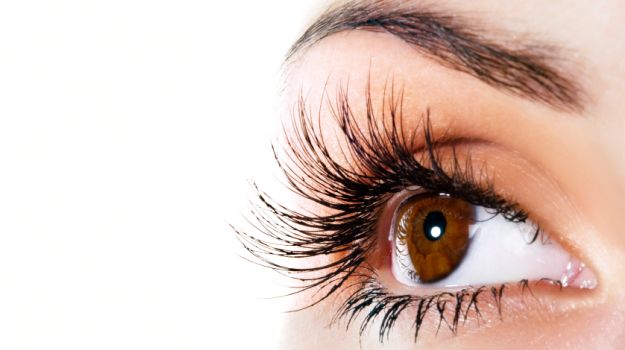Diabetic retinopathy: To avoid diabetic retinopathy and other complications associated with diabetes, you need to maintain a healthy lifestyle and a healthy weight along with regular monitoring of blood sugar levels.

Diabetic retinopathy: Vision problems tend to return to normal once glucose levels are streamlined
HIGHLIGHTS
- People with type 1, type 2 diabetes are at risk of diabetic retinopathy
- Uncontrolled blood sugar levels can lead to vision problems in diabetics
- A healthy lifestyle can prevent onset of diabetic retinopathy
Diabetic retinopathy is essentially a complication of diabetes affecting the eyes. It is caused by damage to blood vessels of light-sensitive tissue at the back of the eye or retina. During the initial stages, diabetic retinopathy shows only mild symptoms like vision problems. People with type 1 and type 2 diabetes are at risk of developing diabetic retinopathy. It is likely to develop in those who have uncontrolled blood sugar levels. Constantly high blood sugar levels puts you at risk of diabetic retinopathy by damaging network of tiny blood vessels which supply blood to the retina. Symptoms of diabetic retinopathy include blurry vision, spots or dark strings floating in your vision, impaired colour vision, vision loss, fluctuating vision and impaired colour vision.
Diabetic retinopathy: Stages, diagnosis and treatment options
Vision problems caused by diabetic retinopathy tend to return to normal once the glucose levels are streamlined. If blurriness or other vision problems don't go away, then it could be a sign of blindness. With the help of dilated eye exam and visual activity testing measures, ophthalmologists are able to detect vision loss caused by diabetes.
Eye lens tends to swell during high blood sugar levels. This changes your ability to see and causes blurry vision. People with diabetes are also at risk of cataracts, retinopathy and glaucoma.

Diabetic retinopathy can lead to blurry vision
Photo Credit: iStock
Also read: These 7 Herbs Can Reduce Blood Sugar Levels Naturally
Stages of diabetic retinopathy
- Mild nonproliferative retinpathy: This is the stage at which there is ballon-like swelling in small areas of retina's tiny blood vessels, known as microaneurysms occur.
- Moderate nonproliferative retinopathy: At this stage the blood vessels which nourish the retina are blocked.
- Severe nonproliferative retinopathy: Blockage in blood vessels increase. This deprives parts of retina with blood supply. This signals the body with a need for nourishment by growth of new blood vessels.
- Proliferative retinopathy: Abnormal and fragile blood vessels grow along the retina, filling inside of the eye. They do not cause any symptoms but results in the blood vessels having thin and fragile walls. These walls can leak blood leading to vision loss and blindness.
Diabetic retinopathy cannot be cured. Laser treatment or photocoagulation is used largely for preventing vision loss before severe damage to the retina. Surgically removing vitreous gel can also help in improving the vision, as far as there is no severe damage to the retina.
Also read: 5 Common Vision Problems Your Child Could Be Suffering From
Diagnosis of diabetic retinopathy
As mentioned above, diabetic retinopathy does not cause any noticeable symptoms. It is usually diagnosed with a regular eye screening test that is part of diabetes diagnosis. A comprehensive eye exam is done for diagnosis-which includes a slit lamp examination, a dilated retinal check and measurement of intraocular pressure. Ultrasound B-Scan, Optical Coherence Tomography, Fundus Fluorescein Angiography (FFA) are additional testes which may be done to study structure of the eyes.
Diabetic retinopathy: treatment options
-
Laser treatment
This is a common treatment option for diabetic retinopathy, it is performed as an out-patient procedure. As part of the treatment, an intense beam of light is focused on the area to be treated. It is done with the help of slit lamp and special contact lens. This procedure reduces retinal thickening and stops bleeding. Additional treatment may be required. It depends on the patient's condition and blood sugar control.
-
Surgical treatment
In some cases, vitreous may pull on the retina and reduces vision severely. Vitrectomy is the surgical procedure performed in such cases. This surgery is usually required in advanced stages of diabetic retinopathy.
-
Intravitreal injections
This treatment is used in case of selected conditions. It involves injection of drugs which are prescribed by your doctor on the basis of your condition.
To avoid diabetic retinopathy and other complications associated with diabetes, you need to maintain a healthy lifestyle and a healthy weight along with regular monitoring of blood sugar levels. Your blood sugar can be controlled by eating a healthy diet with fewer refined carbs and no refined sugar, and regular exercise.

A healthy lifestyle can prevent diabetes and reduce incidence of diabetes complications
Photo Credit: iStock
Also read: Reduce Your Risk of Diabetes Complications With Simple Lifestyle Changes
Disclaimer: This content including advice provides generic information only. It is in no way a substitute for qualified medical opinion. Always consult a specialist or your own doctor for more information. NDTV does not claim responsibility for this information.
DoctorNDTV is the one stop site for all your health needs providing the most credible health information, health news and tips with expert advice on healthy living, diet plans, informative videos etc. You can get the most relevant and accurate info you need about health problems like diabetes, cancer, pregnancy, HIV and AIDS, weight loss and many other lifestyle diseases. We have a panel of over 350 experts who help us develop content by giving their valuable inputs and bringing to us the latest in the world of healthcare.













